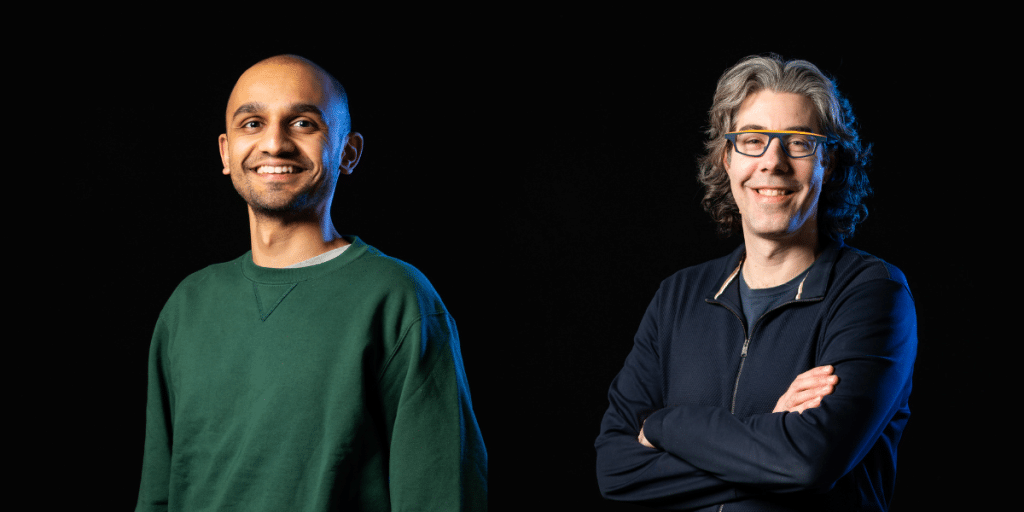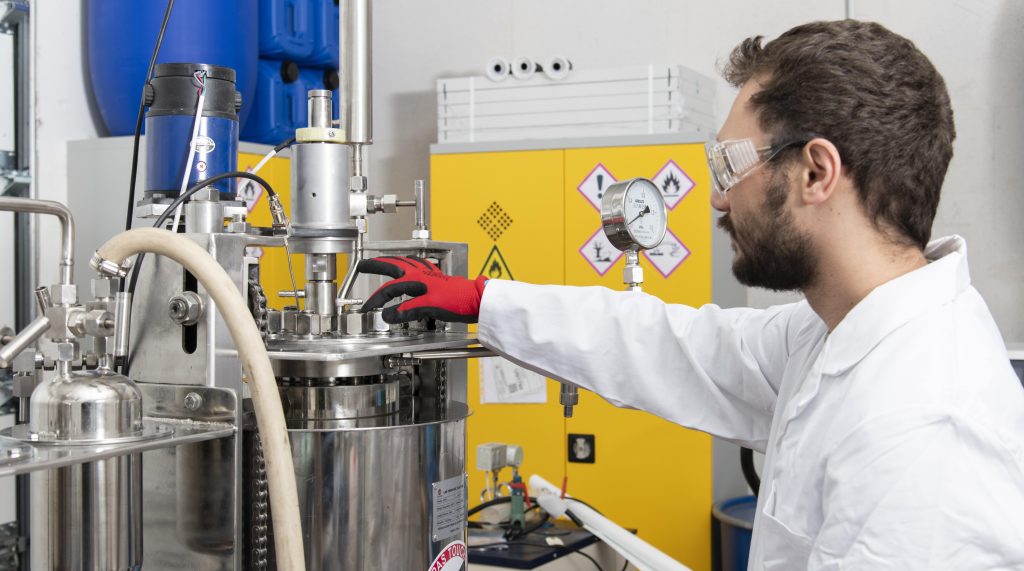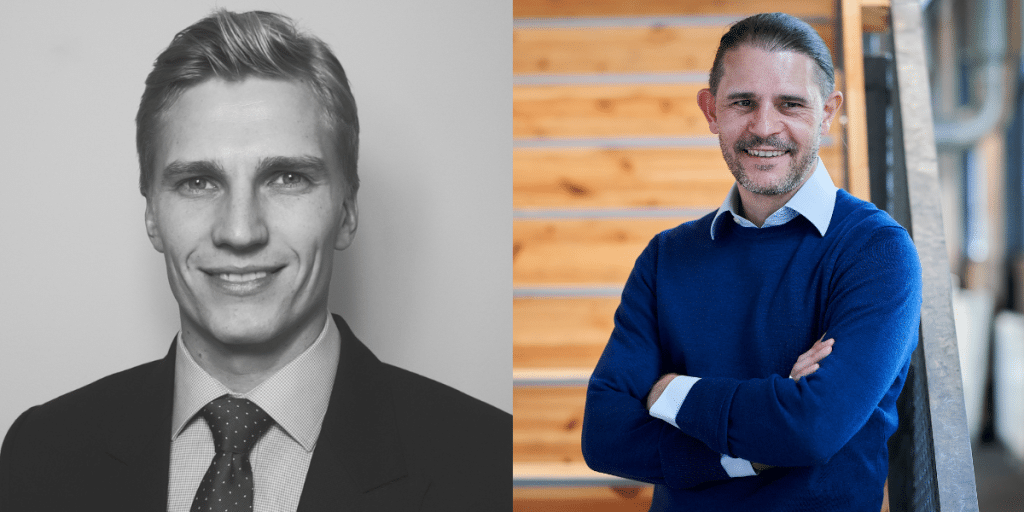Meet the European start-ups tackling recycling challenges with tech
Plastic pollution is a global and growing problem with 400 million tonnes of waste generated every year. But the UN Environment Programme (UNEP) reports that this could be cut by 80 per cent by 2040 if we implement existing technologies to make significant policy shifts and market adjustments. Addressing the root causes of the problem –- rather than just the symptoms –- requires a “systems change” scenario. This involves accelerating the market for reusable products and plastics recycling, and shaping the market for plastic alternatives.
Recycling is a critical step toward building a more circular economy. For the second edition of the Amazon Sustainability Accelerator, we set out to identify start-ups developing technologies to propel the recycling industry forward. This includes new technologies that tackle yet-to-be-solved recycling challenges or technologies that significantly improve on existing tools, such as advanced sortation machinery and waste management data systems.
The selection committee, composed of EIT Climate-KIC, WRAP and Amazon representatives, selected six start-ups based on a variety of criteria including expertise within the chosen industry, business model and sustainability impact. With solutions to better sort plastics, textiles and metals, these start-ups teams have ambitions to scale the growth of their technology and are committed to building their business with environmental impact in mind.
Meet the start-ups
PolyPerception BV (Belgium) – PolyPerception offers a waste flow analysis and process optimisation solution for waste sorting and recycling facilities. This allows plastic recovery facilities, material recovery facilities and recyclers to measure and optimise their sorting efficiency of mixed packaging waste and sort and recycle at higher rates. Powered by AI and computer vision, the technology brings traceability, optimisation and automation to an industry that has traditionally operated with a lack of data.
PolyPerception was founded by Rafael Hautekiet (Principal Engineer), Nicolas Bream (CEO) and Parshva Mehta (COO). Hautekiet and Bream are both experienced AI engineers. Bream has over 20 years of experience, including seven years in Silicon Valley, while Mehta has experience in recycling and waste collection systems for household waste.

The PolyPerception team of Parshva and Nicolas
Matoha Instrumentation Ltd (England) – Matoha tackles waste pollution and promotes the circular economy through material identification devices that sort textiles and plastics before recycling. The portable devices can scan and identify materials on-site without the need for a lab analysis and can trace and track data streams of the sorting thanks to a cloud system.
The start-up was founded by Martin Holicky (CEO), Hans Chan (CTO) and Lieve Vanrusselt (Director). Holicky and Chan have 18 years of combined experience in sensing and instrumentation and drive Matoha’s technical innovations. Lieve leads business development including the development of the fabrics’ business stream.

The Matoha team of Martin, Hans and Lieve
Sorted Technologies Ltd (England) – Sorted uses AI to help waste management companies sort their recyclable materials. The start-up’s Smart Conveyor Belt can identify different kinds of recycled materials with a laser tagging system that alerts human waste pickers which items to remove from the picking line. The team estimates that this technology can divert up to 400 tonnes a year of plastics from energy and landfill to be recycled or sold.
The passionate team of founders include Luis Espinosa (CEO) and Arthur Goujon (CTO). Goujon has over 15 years of experience in waste management and tech while Espinosa brings a strong business background as a two-time B2B founder.

The Sorted team of Luis and Arthur
TerraWaste Holding B.V. (Netherlands) – TerraWaste is developing a platform technology which focuses on recycling plastics, dry, wet and mixed waste through an advanced chemical recycling pollution-free process, resulting in high-value chemicals, oil and biochar. The technology used for this process is a high pressure/high-temperature Hydrothermal liquefaction (HTL) system whose design enables a highly efficient use of energy, water and catalysts producing zero waste whilst converting waste plastics into value.
TerraWaste was founded by Aija Pope (CEO), Dr Payam Zargarzadeh (CTO) and Kristaps Cirulis, (Chief Design Officer). Each entrepreneur brings extensive expertise in project management, systems development and product design, respectively.

The TerraWaste team of Kristaps, Payam, Aija, Shai
Induo (France) – Induo is a start-up specialised in textile technology that has developed Refact. Refact turns textile into brand new apparel. Its main difference with the other recycling technologies is its capacity to recycle complex blends and poorly sorted textile waste, opening the possibility to recycle vast amount of waste currently burnt or landfilled.
The start-up was founded Sébastien François (CEO), a two-time founder and the inventor of nine patents; Mathis Blanchard (engineer); and Marjorie Saison (CTO).

Inside Induo’s lab
Argo Natural Resources Limited (aka Descycle) (England) – The metals industry is reliant on pollutive and carbon intensive processes. Descycle is replacing these with innovative technology based on a novel chemistry: Deep Eutectic Solvents (DES). Descycle is developing a low-energy clean process that can recycle metals for a fraction of the capital cost. This low capex and impact footprint will enable the recycling of metals at local scale, removing the reliance on global scale smelting operations.
The start-up team consists of an engineer (Dr Leonidas Howden, Managing Director), chemist (Dr Rob Harris, CTO) and geologist and finance professional (Fred White, CCO).

Founders Fred and Leonidas
Scaling to new heights
After 12 weeks of coaching, workshops and mentorship, the start-ups are now ready to take the next step toward scaling their impact-driven businesses. Both the Recycling Technologies and Consumer Products cohorts will soon pitch their businesses to an audience of seasoned investors to help them build connections and raise further funding.
The Amazon Sustainability Accelerator Demo Day takes place on 19 July at the Barbican Conservatory in London. The event represents the culmination of the bespoke 12-week equity-free programme, supported by EIT Climate-KIC and WRAP.
